Do you have allergies, but still want a small-breed dog? Chihuahuas are beloved for their miniature size — at just 6 to 10 inches in height and weighing anywhere from 2 to 6 pounds, they can easily fit on your lap! But is this pint-sized pooch hypoallergenic?
You may be surprised to know that while Chihuahuas are not always completely hypoallergenic, there are some things you can do to reduce the chances of allergic reactions when living with your furry friend.
In this blog post, we’ll cover everything you need to know about Chihuahua allergy triggers, grooming tips for keeping allergies at bay and more. So if you’re looking for an itch-free companion who loves cuddles as much as sniffs — read on!
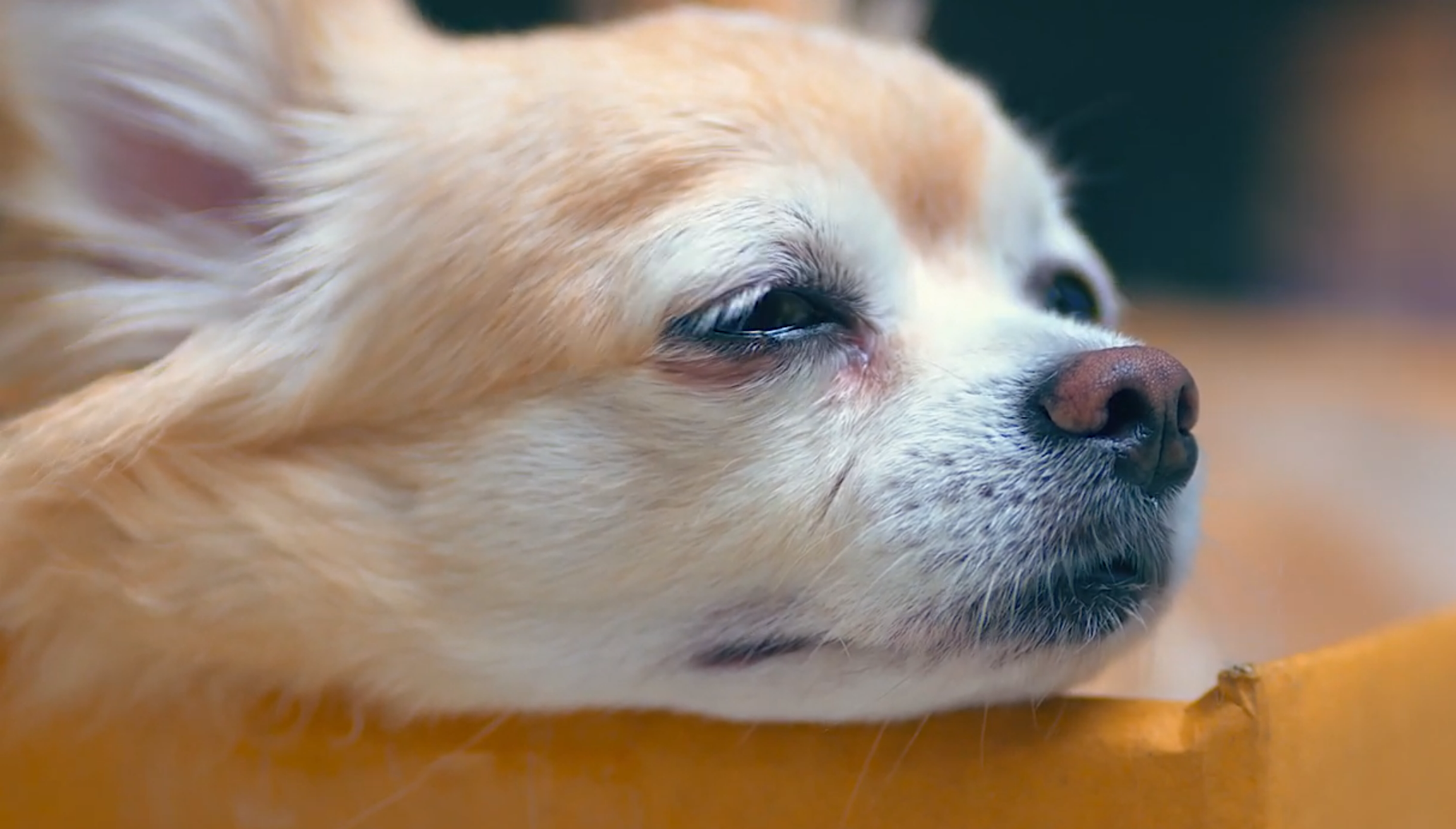
Why do people think Chihuahuas are hypoallergenic?
Many people think Chihuahuas are hypoallergenic because they have short hair that doesn’t shed. This isn’t necessarily true — while some breeds may be considered “hypoallergenic,” this is really just a marketing term for dogs who produce fewer allergens than other breeds. It’s not an absolute guarantee of allergy-proofing your home.
So while they may be less likely to cause an allergic reaction than other breeds that shed more fur, it’s still possible for people to be allergic to Chihuahuas.
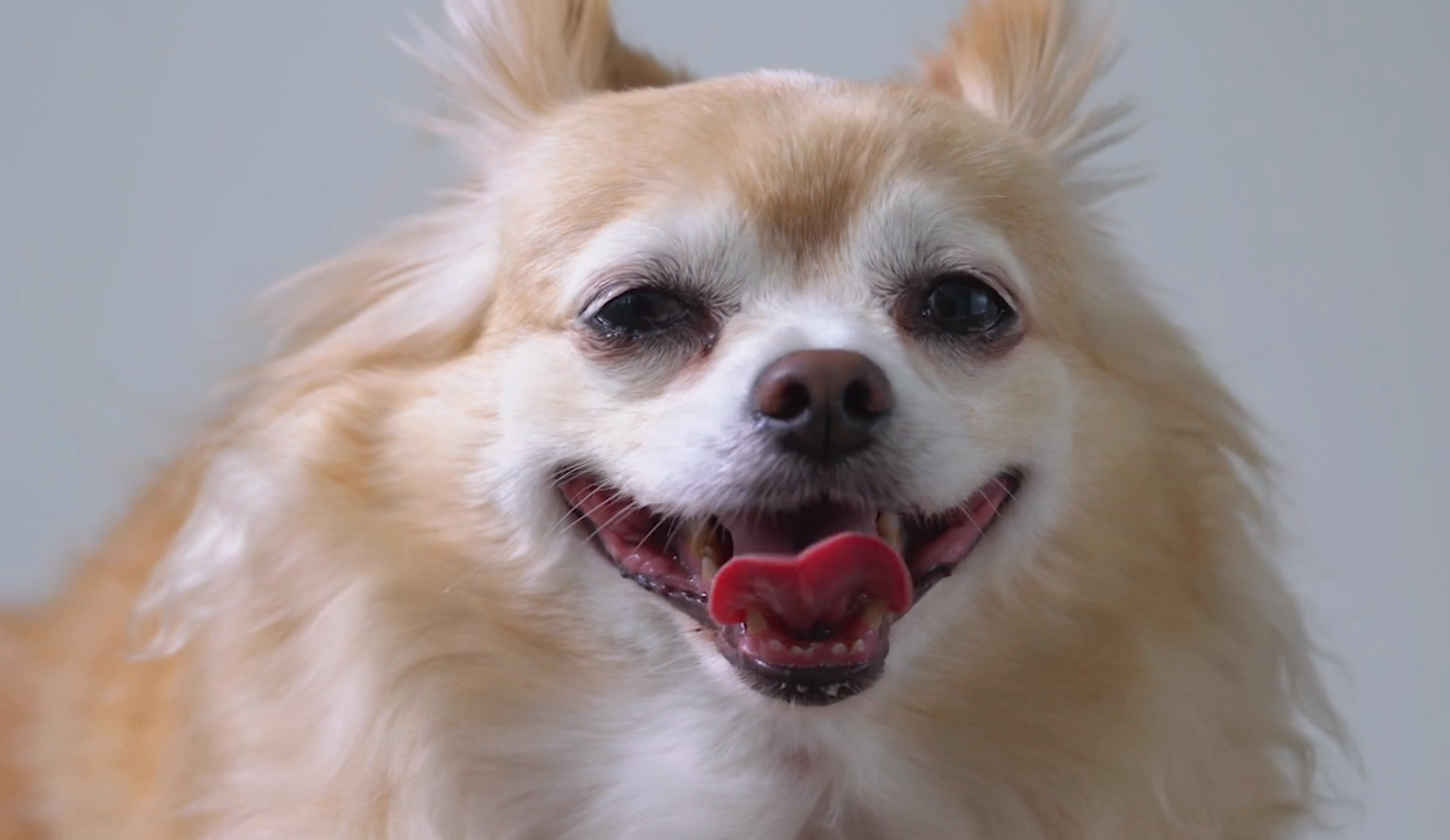
What is a dog allergy, and how common is it?
A dog allergy is an immune system reaction to proteins found in the saliva, urine or dander of a dog. These allergies are usually triggered when someone comes into contact with these proteins, either through touching the fur or breathing in airborne particles that contain them.
Dog allergies tend to be more common than other pet allergies and affect around 10% of people worldwide.
What does “hypoallergenic dog” mean anyway?
The term “hypoallergenic dog” is often used to describe a breed that produces fewer allergens than other breeds. While no dog is completely allergy-proof, certain breeds are less likely to cause a reaction in people who have allergies.
For example, Poodles, Schnauzers and Bichons — all considered hypoallergenic — produce less dander than other breeds.
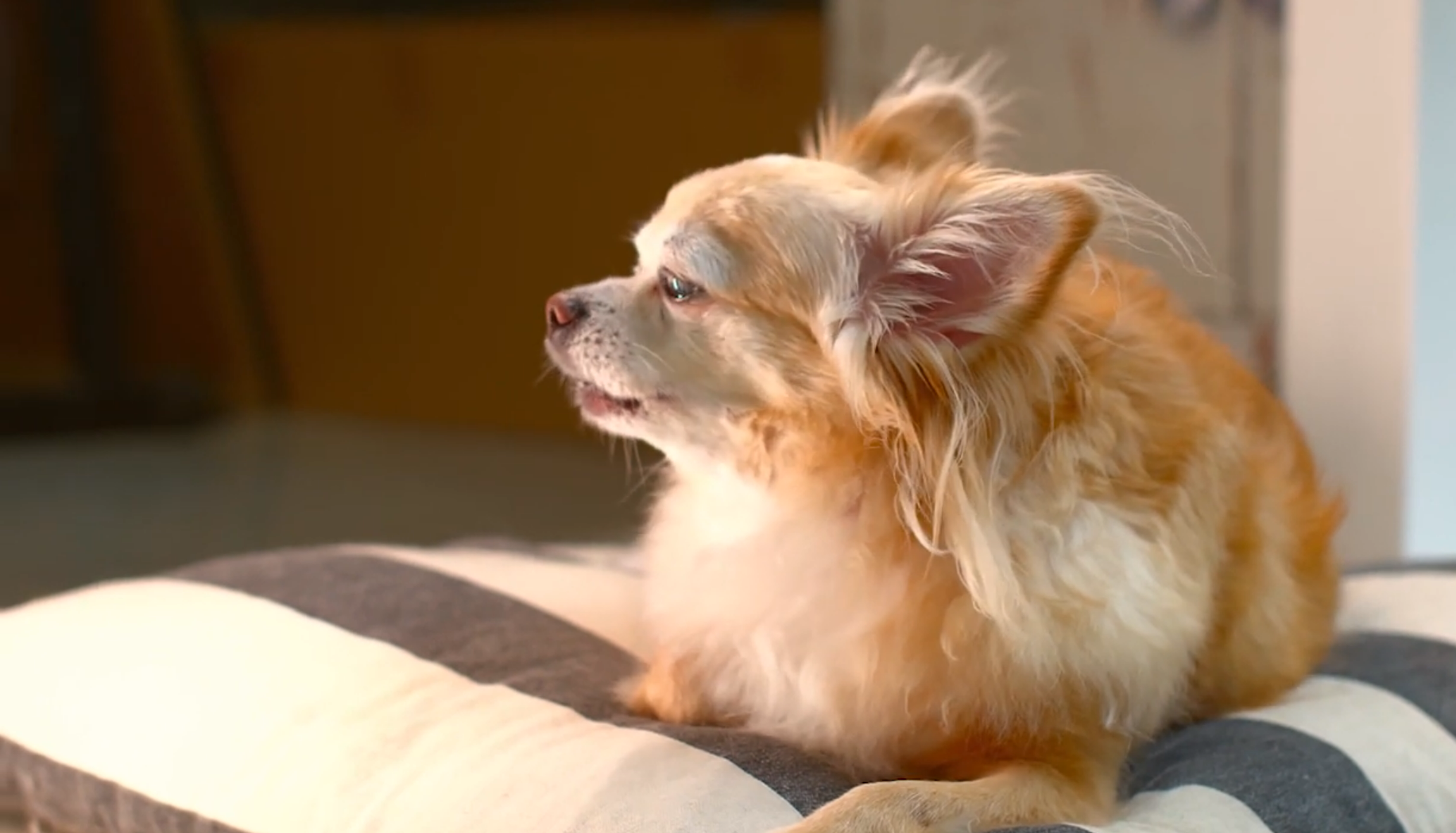
Do Chihuahuas shed a lot?
No, Chihuahuas are known to be low-shedding dogs. This means they produce far less dander than other breeds and their fur does not get matted as easily.
However, this doesn’t necessarily mean they are totally hypoallergenic — just that their shedding is much lower than many other breeds.
Signs you’re allergic to your Chihuahua
If you start to experience symptoms after coming into contact with your Chihuahua, it may be an indication that you are allergic. Typical symptoms can range from a mild rash or sneezing to more severe reactions like difficulty breathing and wheezing.
If you notice any of these signs or if your allergies seem to worsen when around your pet, it’s best to consult your doctor.
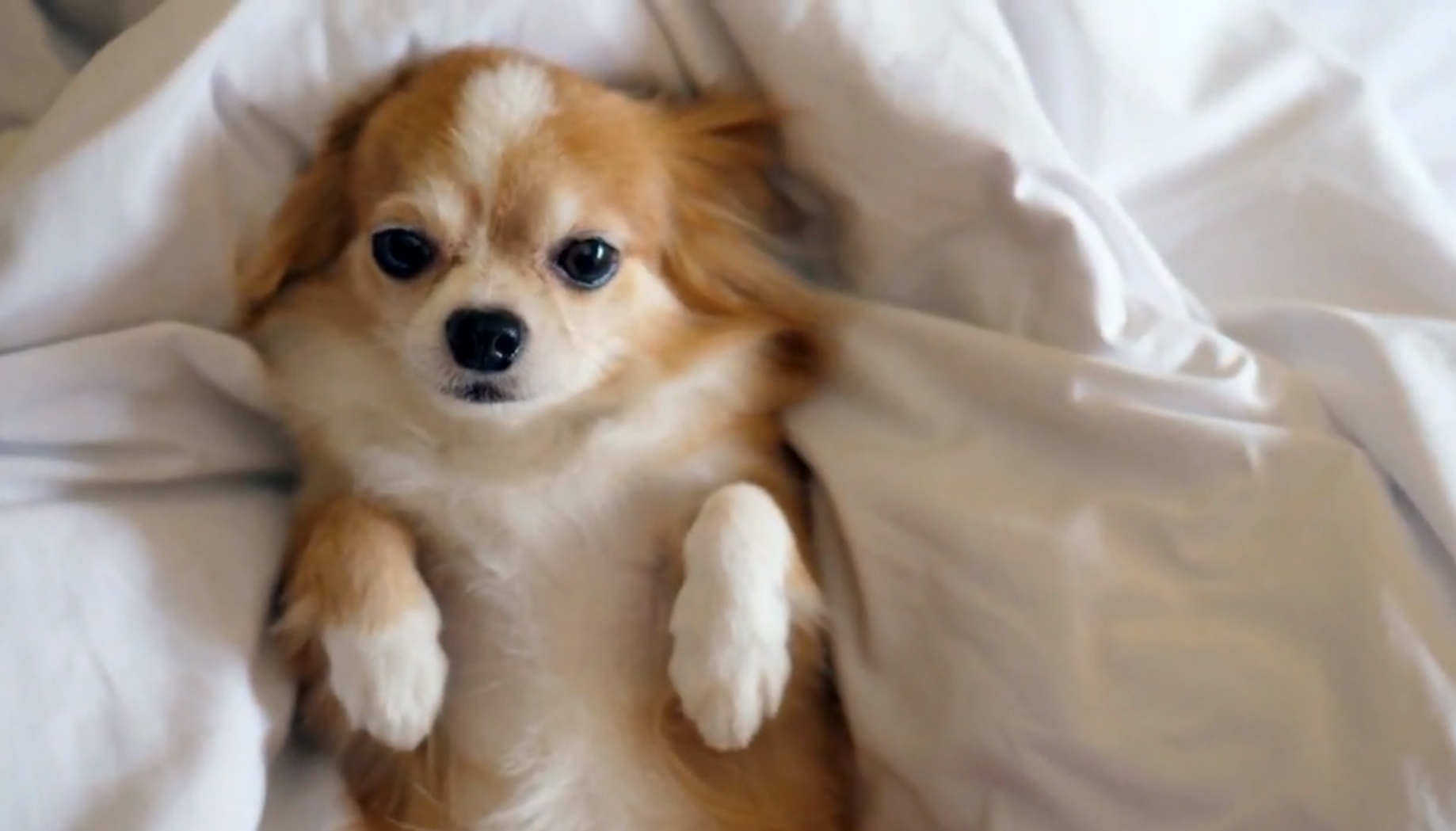
How to make a Chihuahua more allergy-friendly?
Groom your Chihuahua regularly
Regular brushing and grooming can help reduce the amount of dander, saliva and other allergens your Chihuahua produces. Make sure to brush them at least once a week — more often if they have longer hair — to keep their coat clean.
You should also bathe them at least every two weeks with hypoallergenic shampoo to remove any excess dirt, oil or allergens.
Give your Chihuahua skin and coat supplements
Giving your Chihuahua skin and coat supplements can help improve their fur’s natural defences against allergens.
Look for products that are formulated specifically for dogs — they should contain omega 3 fatty acids, vitamins and minerals to keep your pet’s coat looking shiny and healthy.
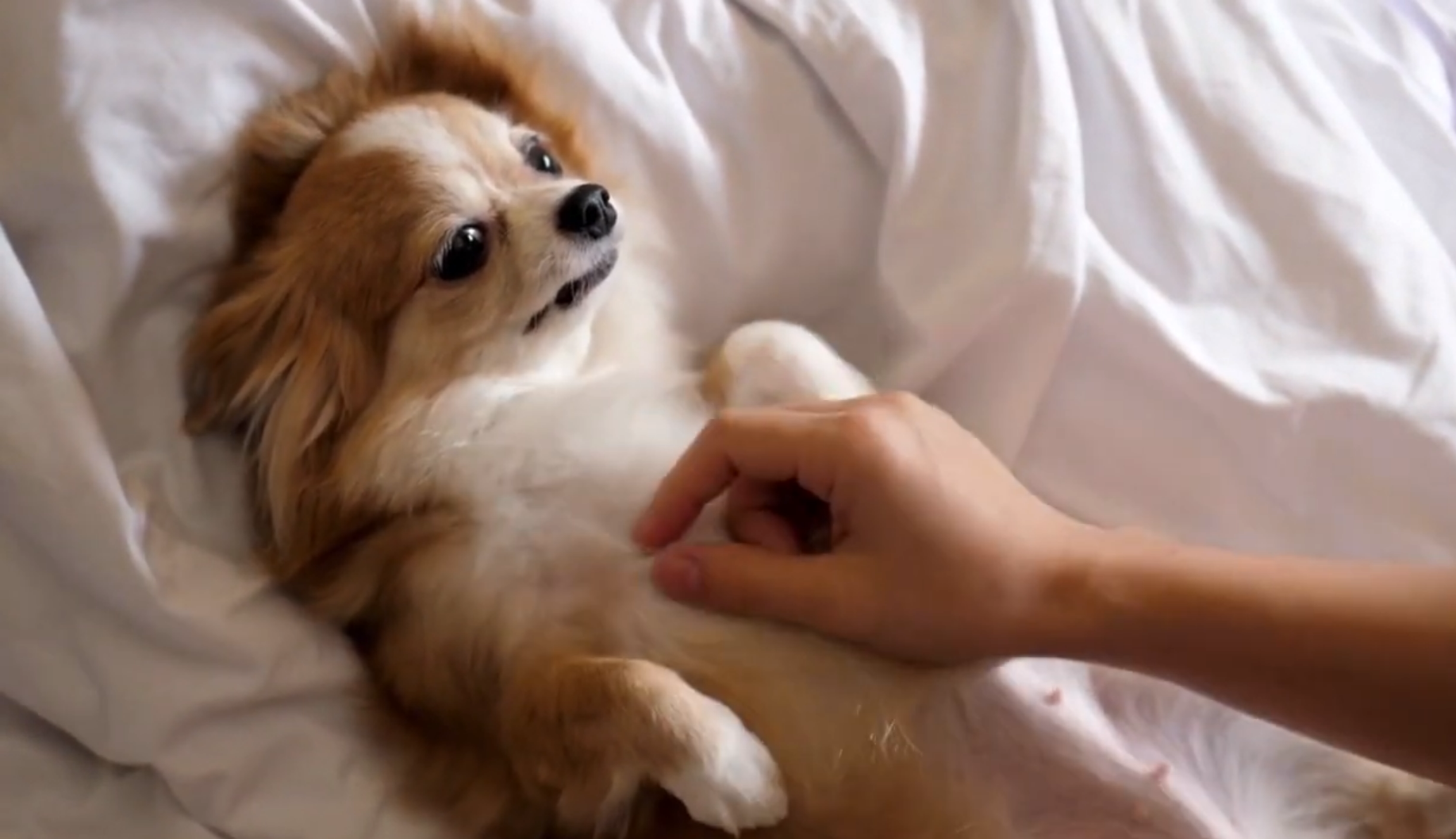
Refuse your Chihuahua access to certain areas of the house
If you are particularly sensitive to allergens, it may be best to limit your Chihuahua’s access to certain rooms or areas in the house. This can help reduce the amount of dander and fur that builds up in these rooms over time.
Use medicated / topical shampoo on your Chihuahua
Medicated shampoos can help reduce the amount of allergens on your Chihuahua’s fur. Look for a product that contains ingredients like oatmeal, baking soda and aloe vera to soothe itching and moisturise the skin.
Be sure to check with your veterinarian before using any topical products on your dog.
Use an air purifier with HEPA filters
An air purifier with HEPA filters can help remove allergens from the air in your home. This can be particularly helpful if you have allergies or asthma as it will help keep the air clean and reduce symptoms.
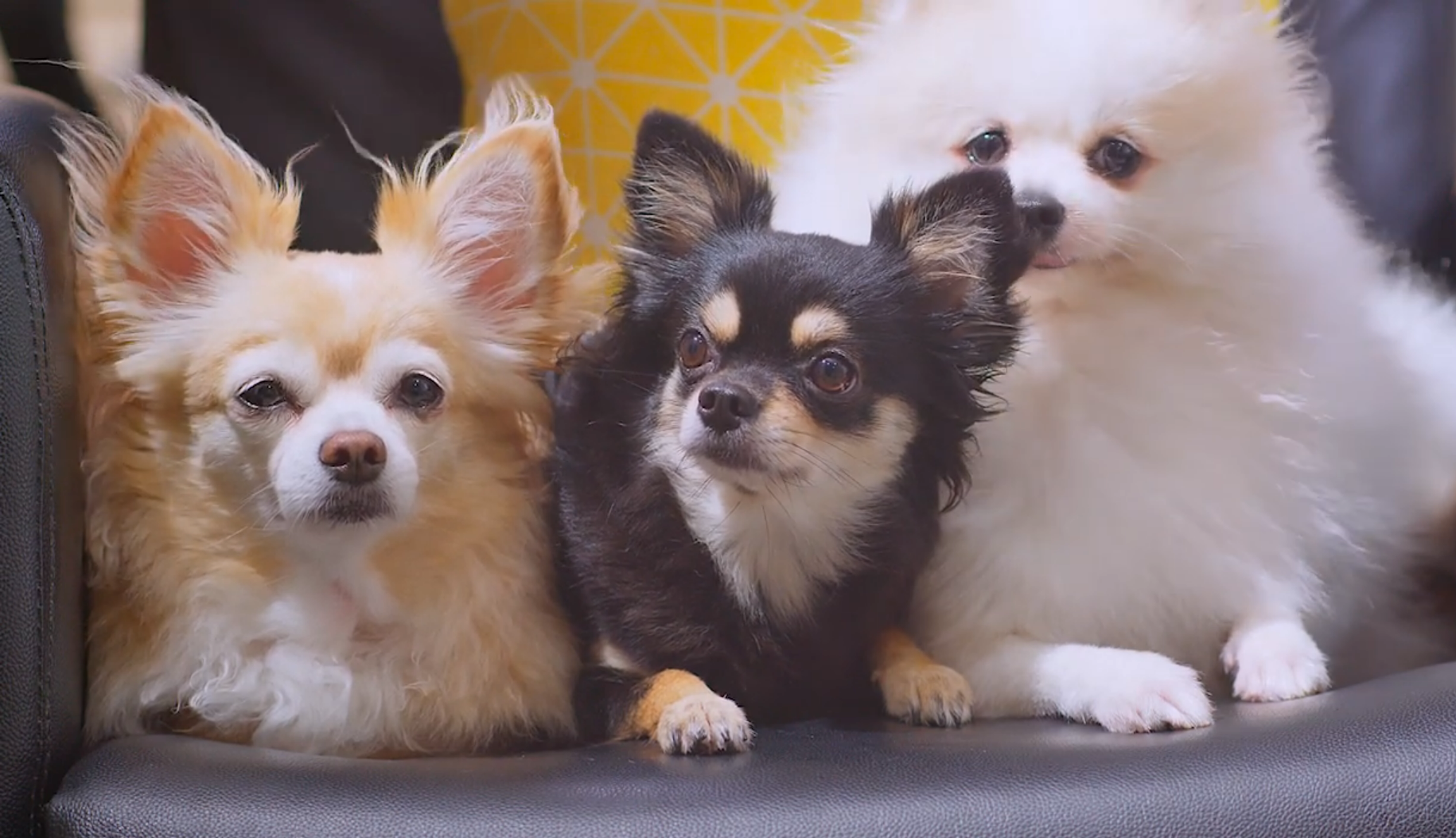
FAQ
Are Chihuahuas OK for allergy sufferers?
Chihuahuas are not always 100% hypoallergenic, but there are steps you can take to reduce the chances of allergic reactions when living with one.
These include regular grooming, using medicated shampoos and topical products, and limiting your pet’s access to certain areas in the house.
Do Chihuahuas shed a lot?
No, Chihuahuas are known to be low-shedding dogs. This means they produce far less dander than other breeds and their fur does not get matted as easily.
However, this doesn’t necessarily mean they are totally hypoallergenic — just that their shedding is much lower than many other breeds.
What is the most hypoallergenic dog?
There is no such thing as a completely hypoallergenic dog, but some breeds are less likely to cause an allergic reaction. These include Poodles, Schnauzers and Bichons — all of which produce less dander than other breeds.
Do Chihuahuas have a lot of allergies?
Chihuahuas do not have a higher risk of allergies than other breeds, but they still produce allergens that can cause reactions in people who are sensitive to them.
To reduce the chances of an allergic reaction, it’s important to groom your Chihuahua regularly and limit their access to certain areas in the house.
What dog is 100% hypoallergenic?
Unfortunately, no dog can be considered 100% hypoallergenic. All dogs produce some amount of allergens, so it’s important to assess your individual sensitivity and take steps to reduce potential allergens in the home.
However, certain breeds such as Poodles, Schnauzers and Bichons are less likely to cause an allergic reaction than other breeds.
Are Chihuahuas good for first-time owners?
Yes, Chihuahuas can make great pets for first-time owners. They are small and don’t require a lot of space or exercise, making them ideal for apartments or homes with limited outdoor space.
They also tend to be friendly and loyal, forming strong bonds with their owners. However, it is important to note that they require regular grooming and socialisation if they are to remain happy and healthy.
Are Chihuahuas cuddly?
Yes, Chihuahuas can be very cuddly and affectionate. They tend to form strong bonds with their owners and enjoy snuggling up for long periods of time. However, it is important to note that they require regular socialisation in order to remain friendly and comfortable around people.
What is the lifespan of a Chihuahua?
The average lifespan of a Chihuahua is between 12 and 20 years. This can vary depending on several factors such as diet, exercise and general health, so it’s important to take good care of your pet in order to ensure they reach their full potential.
What is the best way to care for a Chihuahua?
The best way to care for a Chihuahua is to provide them with a balanced diet, regular exercise and plenty of mental stimulation. It’s also important to groom them regularly and take them for check-ups at the vet on a regular basis. Socialisation is also key — it’s important to introduce them to new people, places and experiences in order to keep them happy and healthy.
What health problems do Chihuahuas have?
Chihuahuas are generally a healthy breed, but they can be prone to certain health issues such as eye and heart diseases. It’s important to monitor your pet for any signs of ill health and to take them for check-ups at the vet on a regular basis.
What is the best diet for a Chihuahua?
The best diet for a Chihuahua is one that provides them with all the essential nutrients they need. This should include high-quality proteins, carbohydrates, fats, vitamins and minerals.
It’s also important to feed your pet based on their age, size and activity level. Your vet can provide you with more advice on what type of diet is best for your pet.
How much exercise do Chihuahuas need?
Chihuahuas are a relatively low-energy breed, so they don’t require a lot of exercise. However, it’s still important to provide them with daily walks and playtime in order to keep them happy and healthy.
It’s also important to ensure they get enough mental stimulation — try introducing them to interesting new environments and toys to keep their minds active.
How do you train a Chihuahua?
Training your Chihuahua requires patience and consistency. Start with basic commands such as sit, stay and come, and reward them with treats or verbal praise when they follow the command correctly.
It’s also important to use positive reinforcement techniques such as clicker training in order to reinforce good behaviours.
What is the average cost of a Chihuahua?
The average cost of a Chihuahua varies depending on where you purchase them from. If you buy your pet from a breeder, it can range anywhere from $500 to $2000.
However, if you adopt your Pet from an animal shelter or rescue organisation, the cost will be much lower.
How much do Chihuahuas weigh?
Chihuahuas typically weigh between 2 and 6 pounds. However, their size can vary significantly depending on the breed — some may be larger or smaller than this range. Additionally, they can come in a variety of colours and coat types.
Do Chihuahuas bark a lot?
Chihuahuas can be prone to excessive barking, so it’s important to train them from an early age in order to limit this behaviour. It’s also important to provide your pet with plenty of mental stimulation and exercise in order to keep them entertained and prevent boredom.
Do Chihuahuas need a lot of grooming?
Yes, Chihuahuas do require regular grooming. This includes brushing their coat weekly, trimming their nails and checking their ears for any signs of infection. It’s also important to bathe them every few weeks in order to maintain healthy skin and fur.
Are Chihuahuas easy to potty train?
Yes, Chihuahuas can be easy to potty train with the right techniques. It’s important to start with a consistent schedule and reward your pet when they display the desired behaviour.
Positive reinforcement is key — try using treats or verbal praise whenever they do something well. Additionally, it’s important to be patient and persistent in order to achieve the best results.
How can I tell if my Chihuahua is healthy?
A healthy Chihuahua should have a bright and alert appearance, with clear eyes and a shiny coat.
Additionally, their gums should be a healthy pink colour and they should not display any signs of fatigue or lethargy. It’s also important to take your pet for regular check-ups at the vet in order to ensure they remain healthy and happy.
Are Chihuahuas Hypoallergenic?
No, Chihuahuas are not considered hypoallergenic. They shed regularly and produce dander, which can cause allergic reactions in some people. It’s important to be aware of this if you or someone else in your home suffers from allergies.
Additionally, it’s important to groom your pet regularly in order to reduce the amount of dander they produce.
How can I keep my Chihuahua safe?
The best way to keep your Chihuahua safe is by supervising them at all times when they are outdoors. It’s also important to ensure that your pet is properly secured in a carrier or harness when travelling in the car.
Additionally, it’s important to provide them with a secure and comfortable environment indoors with no access to dangerous objects or chemicals.
Do Chihuahuas get along with other dogs?
Yes, Chihuahuas can get along with other dogs when they are socialised from a young age. It’s important to introduce them to new people and environments in order to ensure that they remain friendly and comfortable around them.
Additionally, it’s important to provide them with plenty of exercise and mental stimulation in order to keep them happy and healthy.
How long do Chihuahuas live?
Chihuahuas typically live for between 12 and 20 years, depending on their size and genetic makeup. It’s important to provide your pet with a healthy lifestyle in order to maximise their life expectancy.
Additionally, it’s important to take them for regular check-ups at the vet in order to ensure that any health issues are caught and treated as quickly as possible.
How do I know if my Chihuahua is in pain?
Signs of pain in Chihuahuas can include lethargy, reluctance to move, panting and restlessness. It’s important to take your pet for a check-up at the vet if you suspect they are in pain.
Additionally, it’s important to provide them with plenty of love and attention in order to make them feel more comfortable.
How do I find the right vet for my Chihuahua?
The best way to find the right vet for your Chihuahua is by asking friends and family for referrals. Additionally, you can look up reviews online or contact your local animal shelter in order to find a qualified and experienced veterinarian.
It’s also important to ensure that your vet has experience with small breeds in order to ensure that your pet receives the best possible care.
Why should I spay or neuter my Chihuahua?
Spaying and neutering your Chihuahua can help to reduce the risk of certain health issues, including cancer and other reproductive problems. Additionally, it can help to make them more docile and better-behaved.
It’s also important to note that unaltered pets are more likely to attempt to escape, which could potentially lead to them getting lost or hurt.
Why is it important to keep my Chihuahua on a leash?
It’s important to keep your Chihuahua on a leash in order to protect them from potential dangers. They can easily become overwhelmed by their environment or scared of other animals, so keeping them secure and well-contained will help to ensure their safety.
Additionally, it’s important to supervise your pet at all times when they are outdoors in order to ensure that they remain safe and secure.
Why should I get pet insurance for my Chihuahua?
Pet insurance can help to cover the cost of any unexpected medical bills or treatments your pet may require. Additionally, it can provide peace of mind in knowing that you will be able to afford the necessary care if they become ill or injured.
It’s also important to note that some policies may exclude certain breeds, so it’s always best to check with your insurance provider before purchasing a policy.
Why is it important to microchip my Chihuahua?
Microchips can help to ensure that your pet is successfully returned to you if they ever get lost or stolen. Additionally, they can provide peace of mind in knowing that you will always be able to track them and be reunited with them if the worst were to happen.
It’s also important to note that most animal shelters and rescues require all pets to be microchipped before they can be adopted.
How often should I groom my Chihuahua?
Chihuahuas should be groomed at least once every few weeks in order to maintain healthy skin and fur.
Additionally, brushing their coat regularly will help to reduce shedding and keep them looking their best. It’s also important to trim their nails regularly in order to prevent any potential discomfort or injuries.
Does my Chihuahua need a special diet?
Chihuahuas may require a special diet in order to meet their nutritional needs. It’s important to talk to your vet about which food is best for your pet and what portion size they should be eating.
Additionally, it’s important to provide them with plenty of fresh water and monitor their weight regularly in order to ensure that they maintain a healthy body condition.
Do Chihuahuas need regular exercise?
Yes, Chihuahuas need regular exercise in order to stay healthy and happy. It’s important to provide them with plenty of mental stimulation as well as physical activity in order to ensure that they maintain a good quality of life.
Additionally, it’s important to take them for walks every day and participate in activities such as agility or playtime in order to keep them fit and healthy.
Does a Chihuahua’s size affect how much dander they produce?
No, the size of a Chihuahua does not affect how much dander they produce. All dogs will shed to some degree and allergic reactions can vary depending on the person’s individual sensitivity.
It’s important to brush your pet regularly in order to help reduce their shedding and keep the dander levels to a minimum. Additionally, it’s important to provide them with a clean and allergen-free living environment in order to reduce the risk of allergic reactions.
Do Chihuahuas make good pets?
Yes, Chihuahuas can make great companions. They are small, affectionate and loyal dogs that enjoy spending time with their owners. It’s important to provide them with plenty of love and attention in order to ensure that they remain happy and well-behaved.
Additionally, it’s important to train them from a young age in order to prevent any potential behavioural issues. With the right care and attention, Chihuahuas can make wonderful pets.
Does my Chihuahua need to wear a coat during cold weather?
Yes, it is important to provide your Chihuahua with a coat in order to keep them warm during cold weather. This is especially important for smaller breeds as they are more prone to losing heat quickly and can become ill if they are exposed to extreme temperatures. Additionally, ensure that their coat fits them properly and is not too tight or restrictive.
Do Chihuahuas bark a lot?
Chihuahuas are known for being noisy dogs and can bark a lot. They may bark as an alert or to get attention from their owners, so it’s important to provide them with plenty of mental stimulation in order to keep them from becoming bored.
Additionally, consistent obedience training will help to reduce their barking and ensure that they behave appropriately.
Does owning a Chihuahua require a lot of time and effort?
Yes, owning a Chihuahua does require a lot of time and effort. They need to be groomed regularly, provided with plenty of mental stimulation and trained consistently in order to ensure that they remain healthy and well-behaved.
Additionally, it’s important to provide them with regular vet check-ups and ensure that they receive all necessary vaccinations. With the right care and attention, owning a Chihuahua can be a very rewarding experience.
Do Chihuahuas need to be taken to the groomer?
It’s not necessary for a Chihuahua to be taken to the groomers on a regular basis, but it can help keep their coat in good condition. If you decide to take your pet to a professional groomer, ensure that they use natural products that are specifically designed for small dogs.
Additionally, it’s important to make sure that the groomer is experienced in handling small breeds and has a safe and comfortable environment for your pet.
Are Chihuahuas hypoallergenic?
Although there are no dogs that are completely hypoallergenic, some breeds may be less likely to trigger allergies in people. Chihuahuas are considered to be one of the more hypoallergenic breeds due to their short coat and low levels of shedding.
However, it’s important to note that each individual may react differently and everyone should take time to test how they respond around different breeds before making a decision.
What types of health problems can Chihuahuas experience?
Chihuahuas can experience a variety of health problems, including cardiac issues, respiratory issues and dental disease. Additionally, they may be prone to certain genetic conditions such as patellar luxation or hydrocephalus.
It’s important to talk to your vet about which vaccinations and preventative care are necessary for your pet in order to keep them healthy.
Does my Chihuahua need a collar?
Yes, it is important to provide your Chihuahua with a collar in order to keep them safe and secure. Additionally, it’s important to ensure that the collar is comfortable for your pet and not too tight or restrictive.
It’s also recommended to attach an ID tag with your contact information in case they ever become lost or missing.
Do Chihuahuas have any special needs?
Yes, Chihuahuas may have certain special needs that require extra care and attention. It’s important to provide them with plenty of love and affection as well as mental stimulation in order to keep them happy and healthy.
Additionally, it’s important to brush their teeth regularly in order to prevent the buildup of plaque and tartar. With the right care and attention, Chihuahuas can make great companions.
Useful Video: *сюда вставляем название найденного ролика*
Conclusion
All in all, the answer to the question of whether or not Chihuahuas are hypoallergenic is that it depends. While Chihuahuas don’t shed much, what they do shed may cause an allergic reaction in some people. It’s important to remember that each dog’s individual coat can affect this and should be taken into consideration when you shop for a pup.
Additionally, if you have allergies, make sure to arrange a meetup with a breeder’s pet prior to committing so you can determine your reaction first hand. With the right precautions and preparations, a Chihuahua could be a great pet for many allergy-prone people.
If anyone out there is considering adding one of these charming furry friends to their family, consider hosting them for a few days before committing – it always pays to be extra cautious when considering selecting the right companion!
And remember: no matter which breed you choose as your faithful friend, always treat them with love and respect – they’ll return it tenfold!
References:
- https://bijouandco.com/blogs/chihuahua-guide/are-chihuahuas-hypoallergenic





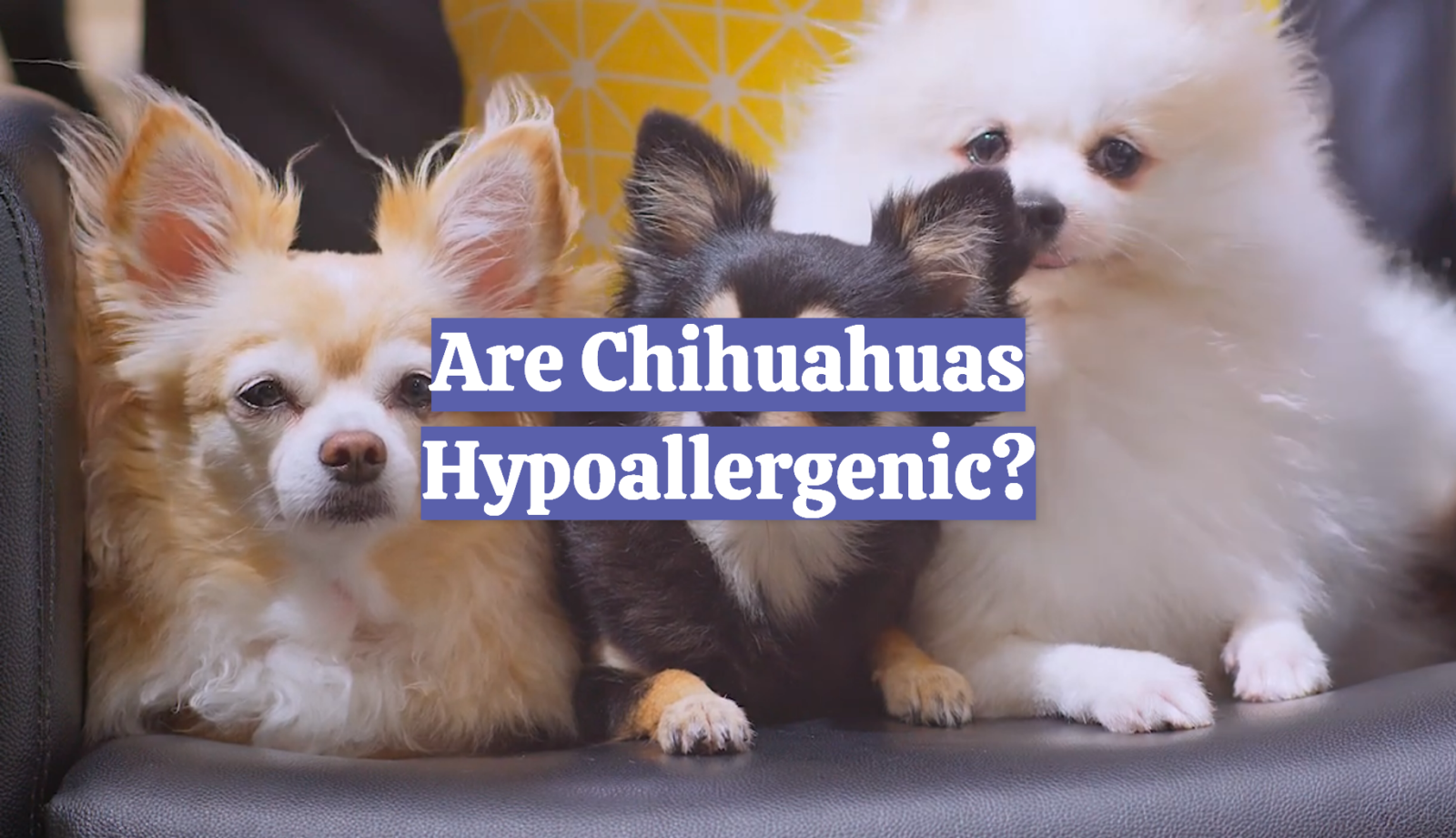




I’ve always been curious about whether Chihuahuas are hypoallergenic, especially as someone who suffers from allergies. Bringing home my Chihuahua, Coco, was a game-changer. While no dog is entirely hypoallergenic, I noticed a significant difference in my allergy symptoms compared to previous experiences with different breeds. Coco’s short coat and minimal shedding seemed to make a positive impact on my allergies, making life with a furry friend much more enjoyable and sneeze-free.
Living with allergies but longing for canine companionship led me to choose a Chihuahua, and it turned out to be a wise decision. My little buddy, Peanut, doesn’t trigger my allergies the way other breeds have in the past. His dander seems less potent, and his grooming needs are manageable. While it’s crucial to note that individual reactions may vary, my personal experience suggests that Chihuahuas can be a great choice for allergy sufferers.
When I decided to add a dog to my family, my concern about allergies led me to consider hypoallergenic breeds. Although Chihuahuas aren’t classified as hypoallergenic, my Chihuahua, Bella, has been surprisingly easy on my allergies. Her short coat requires minimal grooming, and she doesn’t shed excessively. While it’s essential for anyone with allergies to spend time around a specific dog breed before committing, my experience with Bella has been relatively allergy-friendly.
As someone with allergies, I did thorough research before welcoming a Chihuahua named Rocky into my home. What I found was that Chihuahuas tend to produce fewer allergens than some other breeds due to their short hair and relatively clean coat. Having Rocky around has been a joy, and I’ve experienced fewer allergy symptoms compared to interactions with other dogs. It’s essential for prospective Chihuahua owners with allergies to spend time with the breed to gauge personal reactions, but my experience has been surprisingly positive.
Allergic reactions can vary widely from person to person, so deciding to bring a Chihuahua, Luna, into my life required careful consideration. Luna’s short coat and minimal shedding have made living with her manageable for my allergies. While individual sensitivities may differ, my experience with Luna has been a positive one, proving that Chihuahuas can be a feasible option for individuals seeking a dog companion without exacerbating allergy symptoms.
The quest for a hypoallergenic dog led me to my Chihuahua companion, Mochi. While Chihuahuas are not officially hypoallergenic, Mochi’s short coat and minimal shedding have made a noticeable difference for my allergies. The reduced dander and allergen production compared to other breeds have allowed me to enjoy the company of a furry friend without the usual allergy flare-ups.
As someone prone to allergies, choosing a Chihuahua like my little buddy, Oliver, was a calculated decision. Oliver’s coat, being short and smooth, doesn’t trap allergens as much as longer-haired breeds. While he still sheds a bit, it’s manageable, and I’ve experienced fewer allergic reactions compared to interactions with dogs of different breeds. This personal experience has reinforced my belief that Chihuahuas can be a compatible choice for those with mild allergies.
I’ve always been captivated by Chihuahuas, and my decision to bring one into my home was met with cautious optimism due to my allergies. My Chihuahua, Tinkerbell, has proven to be a delightful surprise. Her coat, while not hypoallergenic, is easier to manage, and she doesn’t shed excessively. Living with Tinkerbell has been a joy, and my allergy symptoms have been minimal, making Chihuahuas a potential consideration for individuals with mild allergies.
Navigating dog ownership with allergies pushed me to explore breeds with lower allergen profiles. Enter my Chihuahua, Gizmo, who has been a breath of fresh air, literally. Gizmo’s short hair and minimal shedding have made a noticeable difference in my allergy symptoms. While no dog can be entirely hypoallergenic, my experience with Gizmo suggests that Chihuahuas, with their manageable grooming needs, can be a suitable choice for individuals with allergies.
Welcoming a Chihuahua, Bella, into my life was a decision fueled by both a love for the breed and a consideration for my allergies. Bella’s short coat and minimal shedding have made her a surprisingly compatible companion for someone with sensitivities. While individual reactions vary, my experience has been positive, affirming that Chihuahuas can coexist harmoniously with allergy-prone individuals, providing the joy of canine companionship without exacerbating allergy symptoms.
The prospect of having a dog while managing allergies led me to research hypoallergenic breeds, and surprisingly, my choice fell on a Chihuahua named Peaches. While not officially hypoallergenic, Peaches’ short hair and limited shedding have proven to be a game-changer for my allergy-prone household. Her presence has been a breath of fresh air, figuratively and literally, as I’ve experienced significantly fewer allergy symptoms compared to interactions with other breeds.
Deciding on a Chihuahua, Taco, as my furry companion took into consideration my allergies. His short coat and minimal shedding were appealing factors, and my experience has been surprisingly allergy-friendly. Taco’s presence hasn’t triggered the usual sneezing fits and itchy eyes that I’ve encountered with other dogs. It’s a testament to the idea that, while not entirely hypoallergenic, Chihuahuas can offer a relatively allergen-friendly pet ownership experience.
The journey to find a hypoallergenic dog led me to my Chihuahua, Nacho. Despite the breed not being classified as hypoallergenic, Nacho’s coat has proven to be less problematic for my allergies. The reduced shedding and dander have made living with him a pleasant experience, and I’ve noticed a significant improvement in my allergy symptoms compared to previous interactions with different breeds. It goes to show that individual experiences with Chihuahuas and allergies can be surprisingly positive.
Having a Chihuahua, Bella, as a pet has been a revelation for my allergies. Bella’s short coat and minimal shedding make her a relatively low-allergen choice, and I’ve experienced fewer allergic reactions compared to interactions with other breeds. It’s been a relief to have a furry companion without the usual allergy-related struggles, and Bella’s presence in my life has brought joy and comfort.
Allergies were a significant consideration when I decided to bring a dog into my home, and my choice of a Chihuahua named Rocky has proven to be a great fit. Rocky’s short coat and minimal shedding have contributed to a more allergy-friendly environment. While not entirely hypoallergenic, the reduced allergen production compared to other breeds has made living with Rocky a positive and enjoyable experience, showcasing that Chihuahuas can be a compatible choice for individuals with allergies.